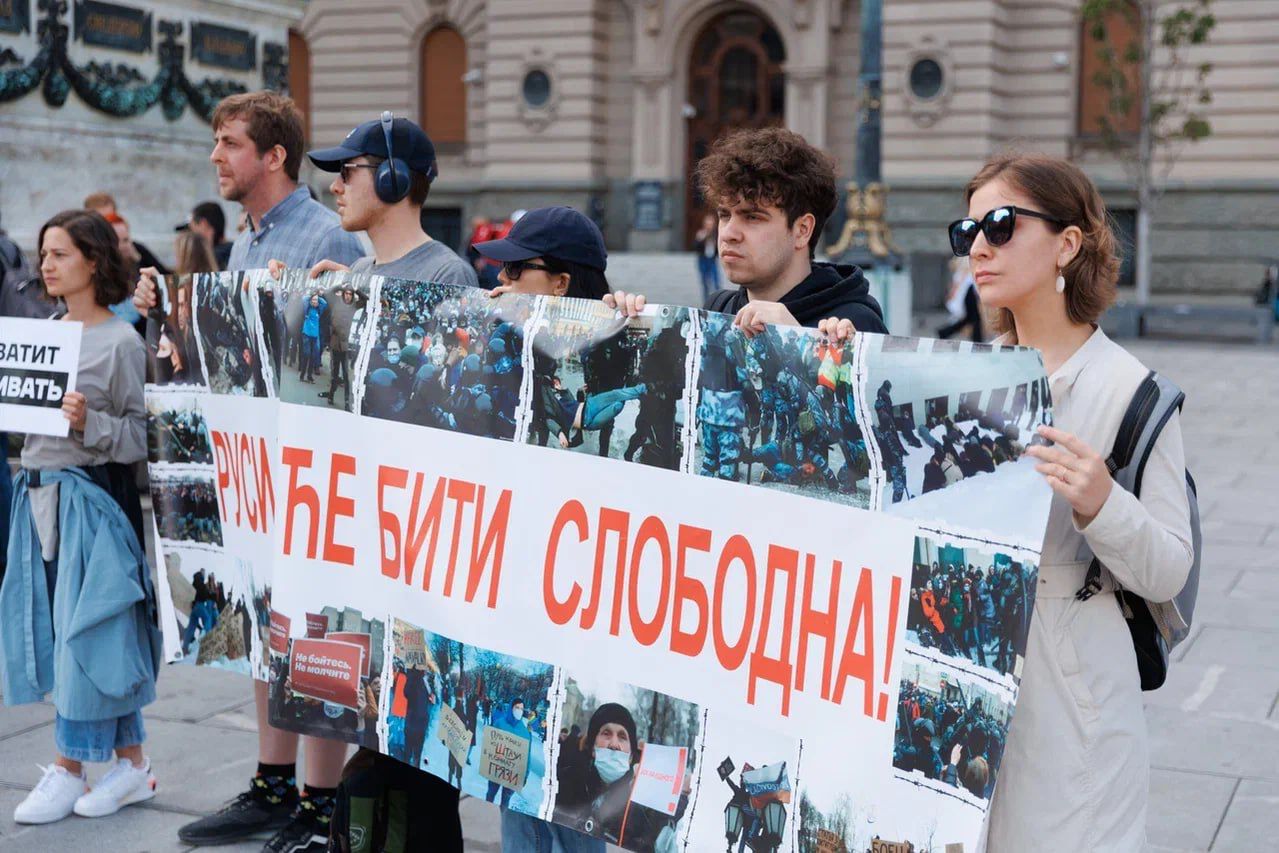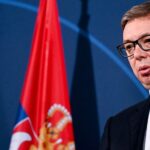The Republic of Serbia became one of the key destinations for the new wave of Russian emigration flow post February 24, 2022, that is, since the outset the full-scale phase of the Russo-Ukrainian war. Hundreds of thousands of Russians resettled in Serbia, most of them pursuing democratic views. Before that, the first major influx of Russians to Serbia was observed after the Bolsheviks came to power in 1917-1918. In 1919, some 1,600 refugees from the former Russian Empire arrived in the Kingdom of Serbs, Croats and Slovenes. In early 1920s came another 8,000, and immediately after the end of the civil war – that is, in late 1920 – more than 20,000. These were all former soldiers, intelligentsia, teachers, engineers, and doctors, along with their families.
At the beginning of the 1930s, some 35,000 people from Russia stayed in the then-Kingdom of Yugoslavia, and the majority lived in Serbia, where the representative office with the Russian Orthodox Church, which had already been banned in Soviet Russia at the time, was rather active. For example, one of the leaders of the White Movement in Russia – Baron Wrangel – was buried in Belgrade’s Russian Church of the Holy Trinity in 1929. However, with the beginning of World War 2, many Russian white emigrants chose to support Nazi Germany, so after the Nazis were defeated in May 1945 and Communists led by Josip Broz Tito come to power in Yugoslavia, many of them were forced to flee farther westward. In 1948, a violent spat arose between Stalin and Tito, who refused to bow down to Moscow. The Kremlin boss decided to put pressure on the leader of the Yugoslav Communists by claiming that the Russians were being persecuted in Belgrade. This eventually led to the remaining part of the Russians having to to leave the country. Some of them returned to the USSR.
According to the Serbian authorities, more than 140,000 Russians left the Russian Federation for Serbia after Russia invaded Ukraine (up to 200,000 according to various estimates). Some sought to dodge military draft, some intended to work for sanctioned Russian companies that were still able to operate in Belgrade and other cities of the country, some wanted to live in peace, and some were willing to escape the society dominated by the Kremlin’s aggressive ideology of “Ruscism.” Historically, Serbs have always been friendly towards Russians. Highly educated émigrés from Russia’s White Movement managed to significantly raise the level of development of the entire society in the Kingdom of Yugoslavia, leaving behind quite a pleasant trail of memories. Therefore, the arrival of new migrants from Russia saw sufficient enthusiasm in Serbian society. The Serbs were particularly excited to welcome those who came to develop their business there, creating new jobs and paying taxes to the national budget.
This was the case until it became clear that it was two categories of Russians who had moved to Serbia – ordinary Russians and “good Russians” (this is how people many countries refer to Russian nationals who wish to not be associated with Putin’s regime, standing against Russia’s war on Ukraine and for a power change in the Russian Federation). Serbian society, with a certain push from mass media affiliated with Russia, were fed reports that those “good Russians” are actually “bad Russians” who are destabilizing Serbia, being paid by the evil West.
It is worth noting that while Russian émigrés in Serbia set up anti-war rallies chanting “Peace to Ukraine, freedom to Russia”, “Putin must be tried in the Hague” and “Freedom to Navalny”, organized art events and joined the response efforts in the aftermath of the tragedy in Belgrade’s Vladislav Ribnikar School, the authorities were rather indifferent to their presence. However, not so long ago, activists moved the venue of their rallies from the area outside the Russian embassy in Belgrade to the street near the Skupshchina (People’s Assembly), this caused a certain stir, in particular, among Russian-speaking Balkan bloggers, who rushed to share their thoughts on how Russian resettlers are being turned into political activists aiming to conceive a new anti-Russian and anti-government initiatives in Serbia – all of this, of course, allegedly being done with money coming from the U.S. Department of State.
On August 10, members of the Russian Democratic Society non-profit, officially registered in Serbia, delivered letters to the Serbian government office, addressing Prime Minister Ana Brnabić, Minister of Internal Affairs Bratislav Hasić, and Director of the Security and Intelligence Agency Aleksandar Vulin, demanding that the authorities stop persecuting Russian activists for their anti-war efforts. Another letter, addressed to the President of Serbia, Aleksandar Vučić, was forwarded to the President’s office. As Piotr Nikitin, one of the founders of the Russian Democratic Society, explained at the press conference, the activists are asking the president and prime minister to take measures to cease pressure on Russian anti-war activists.
According to France’s Figaro, the presence in Serbia of such a large number of Russian resettlers, who mostly profess democratic values and retain an anti-war stance, having left Russia for political reasons, led to a shift in a public opinion in Serbia, which had mostly been mostly pro-Kremlin previously. That is, the change in the architecture of Serbian society, which is observed most prominently in the capital city of Belgrade, has become an important factor that can significantly affect public opinion and the attitude of ordinary citizens across Serbia toward Russia.
It should be noted that not only do Russian resettlers self-organize into movements, they also gradually integrate into a local society, making friends, using various services, and interacting with Serbs informally on a day-to-day basis. Perhaps this is what causes the most anxiety in Moscow, which has inadvertently deployed to a Balkan country that’s perhaps most ideologically close to Russia, a crowd of opinion shapers who publicly express their discontent with Putin’s policy and broadcast a vision of the Russo-Ukrainian war that’s unfavorable for Russia, to say the least.
As a countermeasure, letters Z and V, known as the symbols of Russian aggression, graffiti of Russian President Putin are now being actively displayed in Serbia, the Wagner Group opened its office in the country, and Serbian rap artist NIK1 recently put out a song in support of the so-called “special military operation” and the Wagner. By the way, in the case of the latter, the artist faced harassment and threats from part of the audience. He noted that he had received threats “even in Hungarian.”
It’s definitely too early to talk about any fierce struggle of ideologies or significant shifts in the political moods in Serbian society. Russian media outlets remain active in Belgrade, promoting the Kremlin’s aggressive narratives to the Serbs and relocated Russians. The emergence of an alternative point of view and mobilization of Russian resettlers to set up democratic movements is undoubtedly a matter of concern for the Serbian authorities, sparking interest on the part of external observers. However, the attempt of Russia-affiliated bloggers and mass media to discredit these processes by linking them to the “invisible hand” of the West raises much more pressing questions.
The reluctance of the Serbian president to get rid of the U.S.-sanctioned pro-Russian security chief Aleksandar Vulin, indicates the further worsening of relations between Belgrade and the collective West. This reluctance is anything but welcome in Brussels and may lead to a change in the EU and US position on supporting Serbia along its European integration path. However, both Washington and Brussels should be aware that in case they resort to any drastic moves, this will simply throw the Serbian leadership into Moscow’s bear grip as the Kremlin has long been waiting to seize such an opportunity. It is obvious that the appropriate response on the part of the West must be balanced and well-thought-out. A violent escalation with Belgrade is in no way in the interests of the collective West. It’s soft power tools that should be used in this case.



